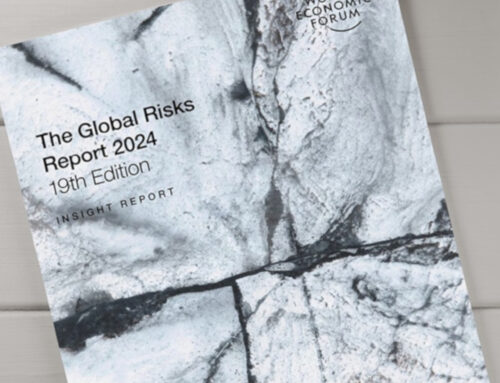Zurich Advocacy on The World Economic Forum (WEF) Global Risks Report 2016
Share this

Cyber-related risks and attacks are now considered the greatest risk to doing business in North America, according to responses to a survey of WEF’s global multi-stakeholder community.
This is one of the key findings from the World Economic Forum’s (WEF) Global Risks Report 2016. The report also found that the failure of climate change mitigation is the No. 1 global risk in terms of potential impact, while large-scale involuntary migration topped the list in terms of likelihood.
The report was developed with contributions from Zurich and other leading financial and academic institutions. The report is based on responses to a survey of nearly 800 members of WEF’s community of leaders in business, academia, civil society and the public. Respondents were asked to consider 29 global risks and rate each according to their perceived likelihood and potential impact over a 10-year horizon.
How the insurance industry can play a role in mitigating risks is discussed throughout the report. The Zurich Advocacy team will continue working with both international and U.S. policymakers on ways a competitive and efficient insurance market can assist in mitigating many of the risks described in the report.
Click HERE to read the report.
Click HERE to check out the Zurich Knowledge Hub on Cyber.
Zurich Advocacy on The World Economic Forum (WEF) Global Risks Report 2016
Share this

Cyber-related risks and attacks are now considered the greatest risk to doing business in North America, according to responses to a survey of WEF’s global multi-stakeholder community.
This is one of the key findings from the World Economic Forum’s (WEF) Global Risks Report 2016. The report also found that the failure of climate change mitigation is the No. 1 global risk in terms of potential impact, while large-scale involuntary migration topped the list in terms of likelihood.
The report was developed with contributions from Zurich and other leading financial and academic institutions. The report is based on responses to a survey of nearly 800 members of WEF’s community of leaders in business, academia, civil society and the public. Respondents were asked to consider 29 global risks and rate each according to their perceived likelihood and potential impact over a 10-year horizon.
How the insurance industry can play a role in mitigating risks is discussed throughout the report. The Zurich Advocacy team will continue working with both international and U.S. policymakers on ways a competitive and efficient insurance market can assist in mitigating many of the risks described in the report.
Click HERE to read the report.
Click HERE to check out the Zurich Knowledge Hub on Cyber.



